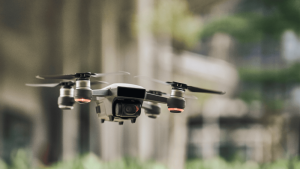The drone sector has more and more applications. However, this expansion faces a key obstacle: administrative bureaucracy. Regulatory complexity, response times of the authorities and lack of harmonization with European regulations are some of the barriers that slow down the development of this industry.
A Demanding and Constantly Evolving Regulatory Framework
Spain, like the rest of Europe and its member states, is governed by the regulations of the Implementing Regulation 2019/947 and the Delegated Regulation 2019/945 issued by the European Aviation Safety Agency (EASA), which establishes a common framework for drone operation. However, the implementation of these regulations at national level has generated certain difficulties along with RD 517/2024 developing the legal regime for the civil use of unmanned aircraft systems (UAS) in Spain.
Drone operators must face multiple administrative procedures to obtain permits, especially in operations involving flights in urban areas, in controlled airspace or in BVLOS (Beyond Visual Line of Sight) conditions, etc. These processes are often lengthy and require exhaustive documentation, which discourages many companies from investing in the sector. In addition, constant changes in regulations generate uncertainty for operators and technology developers.
Slow Response Times and Difficulty of Coordination
One of the biggest problems is the slow processing of permits by the Spanish Aviation Safety Agency (AESA). Authorizations take months to be approved, which hinders project planning and the competitiveness of Spanish companies against other European markets.
In addition, the lack of coordination between agencies, such as autonomous communities and aviation authorities, adds an extra level of difficulty.
In many occasions, drone operators must manage permits with different entities, without a clear communication channel between them. This administrative fragmentation prevents the consolidation of an agile and dynamic ecosystem in the sector.
Lack of Incentives and Support for Innovation
Despite the potential of the sector, Spain still lacks incentive programs that encourage innovation in the drone industry on a recurring basis. Other European countries have implemented strategies to facilitate access to funding, reduce the bureaucratic burden and promote research into new applications.
In Spain, many startups and SMEs find it difficult to develop pioneering projects due to the lack of regulatory flexibility and high administrative costs. The absence of a sector-specific R&D support framework also limits the ability of companies to develop emerging technologies, such as artificial intelligence applied to drones or the use of new energy sources to improve their autonomy.
International Comparison
If we compare the situation in Spain with other countries such as the United States of America, France or China, we can observe a more proactive approach in the integration of drones in the airspace. In the USA, the FAA (Federal Aviation Administration) has developed a more agile system of authorization for commercial drone flights, allowing faster testing and boosting private investment in the sector. France, for its part, has facilitated the integration of drones in sectors such as logistics and transportation, establishing clear and efficient regulatory frameworks. China, as a world leader in this sector, is driving significant technological advances in various areas of new system development and market diversification.
In contrast, regulatory hardness in Spain hinders the adoption of these technologies on a large scale. This poses a significant barrier to the expansion of domestic companies into international markets, limiting their ability to compete on a level playing field with their foreign counterparts.
What Does the Sector Need to Advance?
In order for the drone sector in Spain to reach its full potential, it is necessary to:
- Streamline administrative processes, reducing permit processing times and digitizing procedures.
- Harmonize national regulations with European regulations, avoiding duplication and additional requirements that limit the competitiveness of companies.
- Encourage communication between agencies, creating a more efficient and coordinated system for the authorization of drone operations.
- Support R+D+i, with tax incentives and lines of financing for companies that are committed to innovation in the sector.
- Develop specific test zones, allowing companies to carry out tests without excessive bureaucratic procedures.
Conclusion
Bureaucracy continues to be a major brake on the development of the drone sector in Spain. While other countries are advancing in the integration of these technologies into their economies, Spain runs the risk of falling behind if urgent measures are not taken to facilitate operations and encourage investment in the sector.
It is crucial that public administrations understand the strategic importance of this industry and work together with industry professionals to remove unnecessary barriers and promote a more favorable environment for innovation and growth. The implementation of a more efficient regulatory framework and support for research would allow Spain to position itself as a leader in the drone industry globally.



